BiographyType: Author, Academic, Philologist, Poet Born: 3 January 1892, Bloemfontein, Orange Free Stat Died: 2 September 1973 (aged 81), Bournemouth, D John Ronald Reuel Tolkien (1892-1973) was a major scholar of the English language, specialising in Old and Middle English. Twice Professor of Anglo-Saxon (Old English) at the University of Oxford, he also wrote a number of stories, including most famously "The Hobbit" (1937) and "The Lord of the Rings" (1954-1955), which are set in a pre-historic era in an invented version of our world which he called by the Middle English name of Middle-earth. This was peopled by Men (and women), Elves, Dwarves, Trolls, Orcs (or Goblins) and of course Hobbits. He has regularly been condemned by the Eng. Lit. establishment, with honourable exceptions, but loved by literally millions of readers worldwide. |
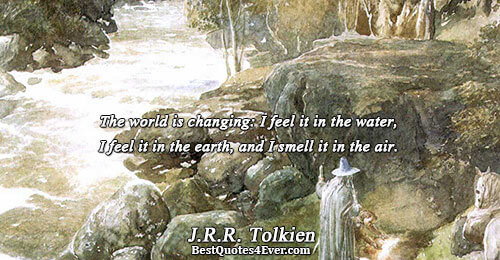
The world is changing: I feel it in the water, I feel it in the earth, and I smell it in the air.
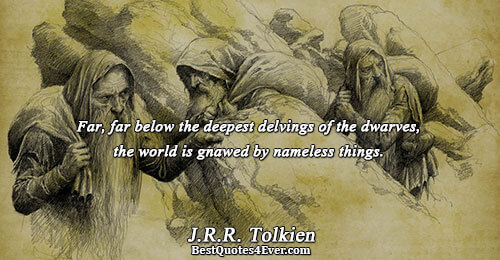
Far, far below the deepest delvings of the dwarves, the world is gnawed by nameless things.
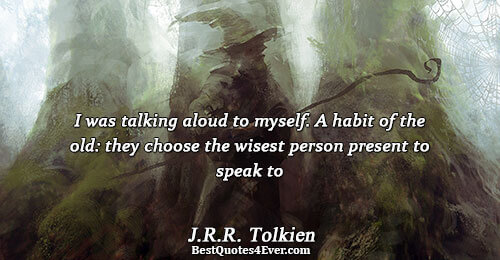
I was talking aloud to myself. A habit of the old: they choose the wisest person present to speak to
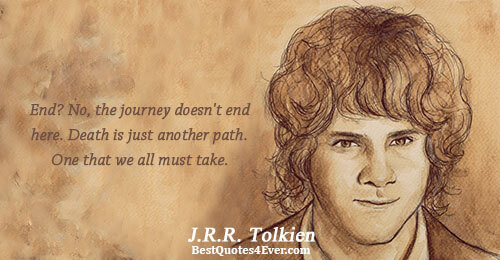
End? No, the journey doesn't end here. Death is just another path. One that we all must take.
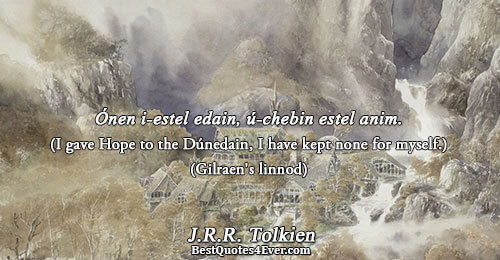
Ónen i-estel edain, ú-chebin estel anim.
(I gave Hope to the Dúnedain, I have kept none for myself.)
(Gilraen's linnod)
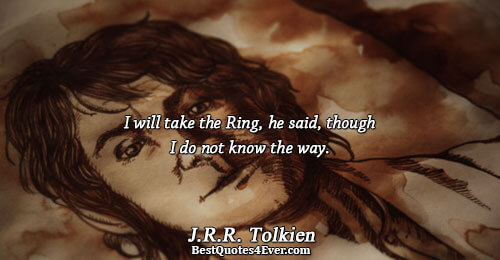
I will take the Ring", he said, "though I do not know the way.
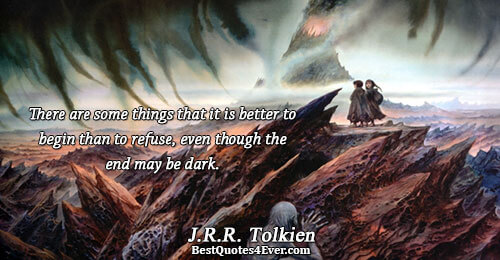
There are some things that it is better to begin than to refuse, even though the end may be dark.
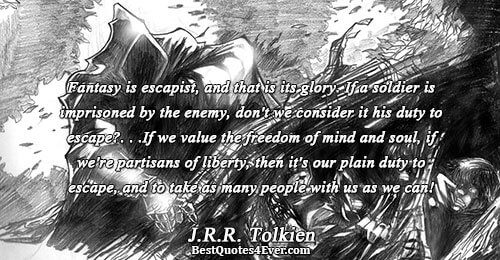
Fantasy is escapist, and that is its glory. If a soldier is imprisioned by the enemy, don't we consider it his duty to escape?. . .If we value the freedom of mind and soul, if we're partisans of liberty, then it's our plain duty to escape, and to take as many people with us as we can!